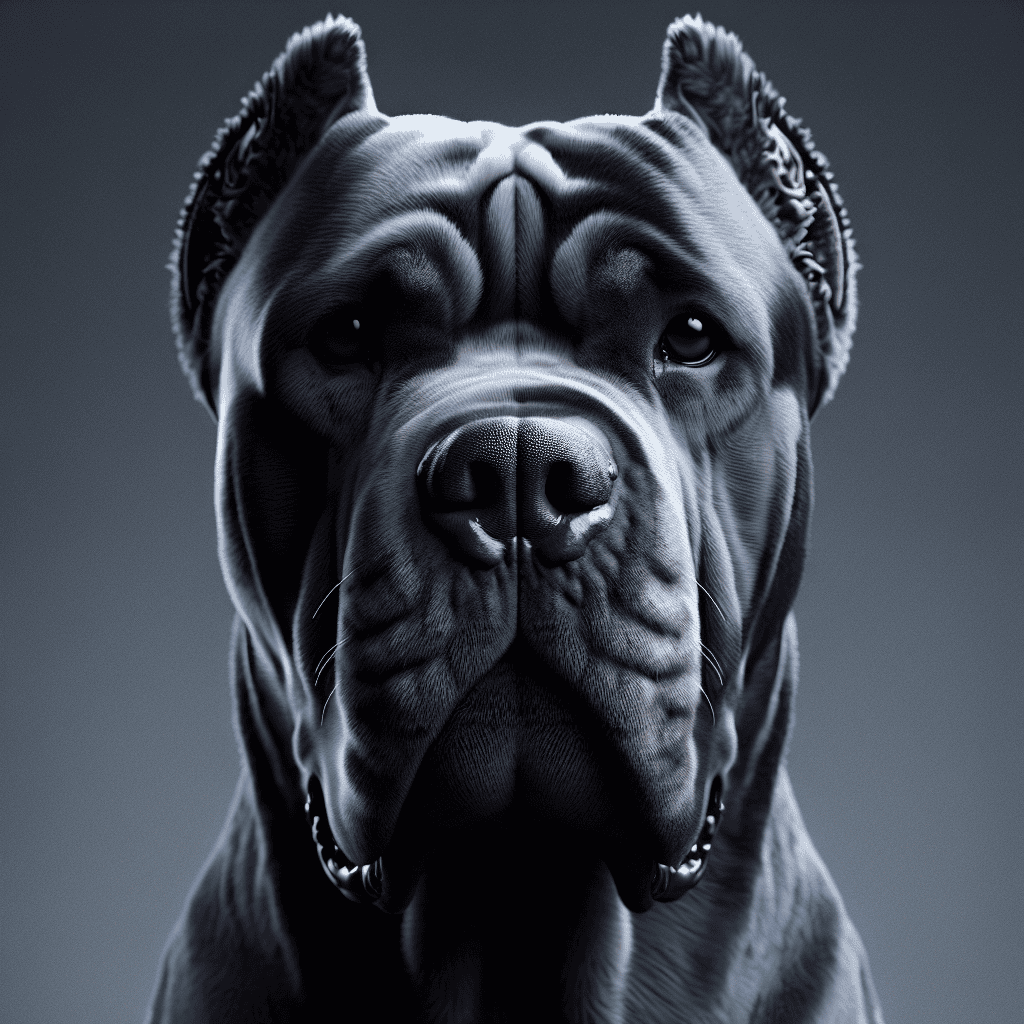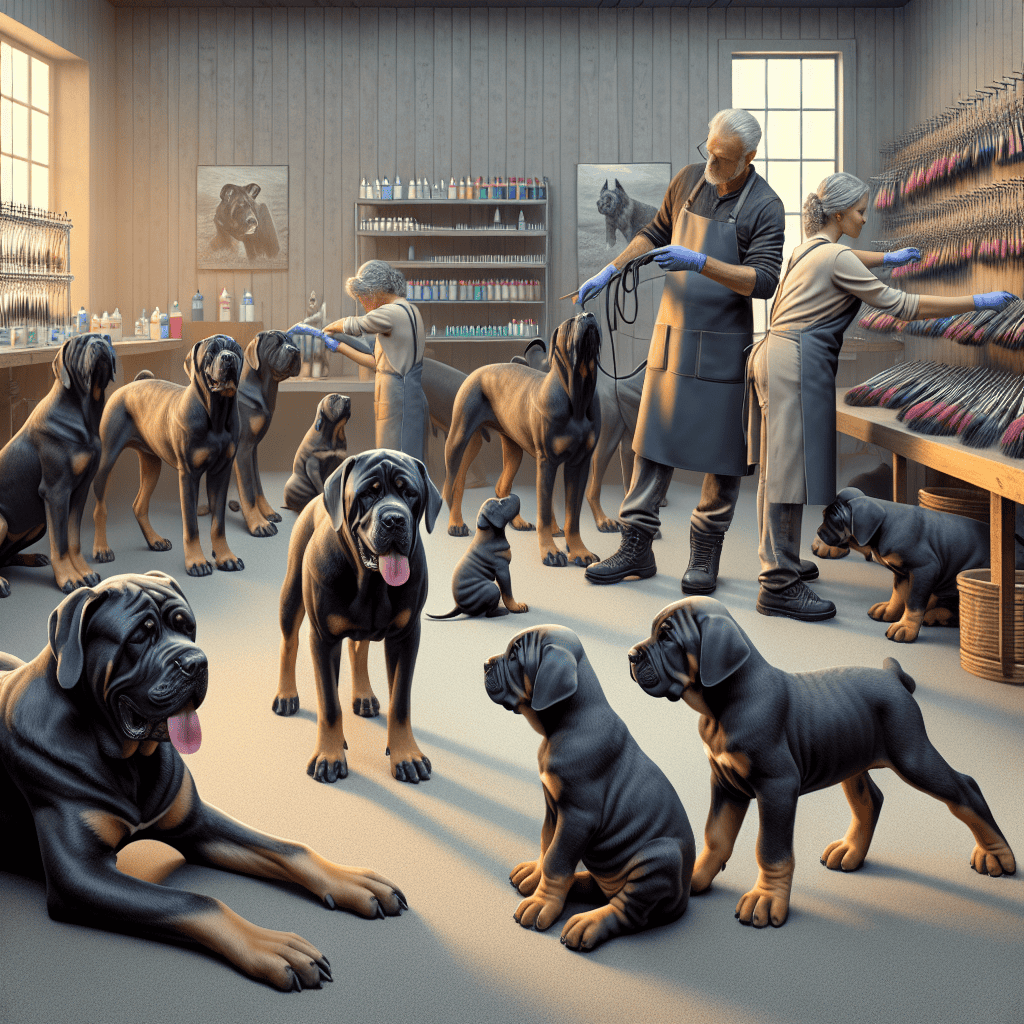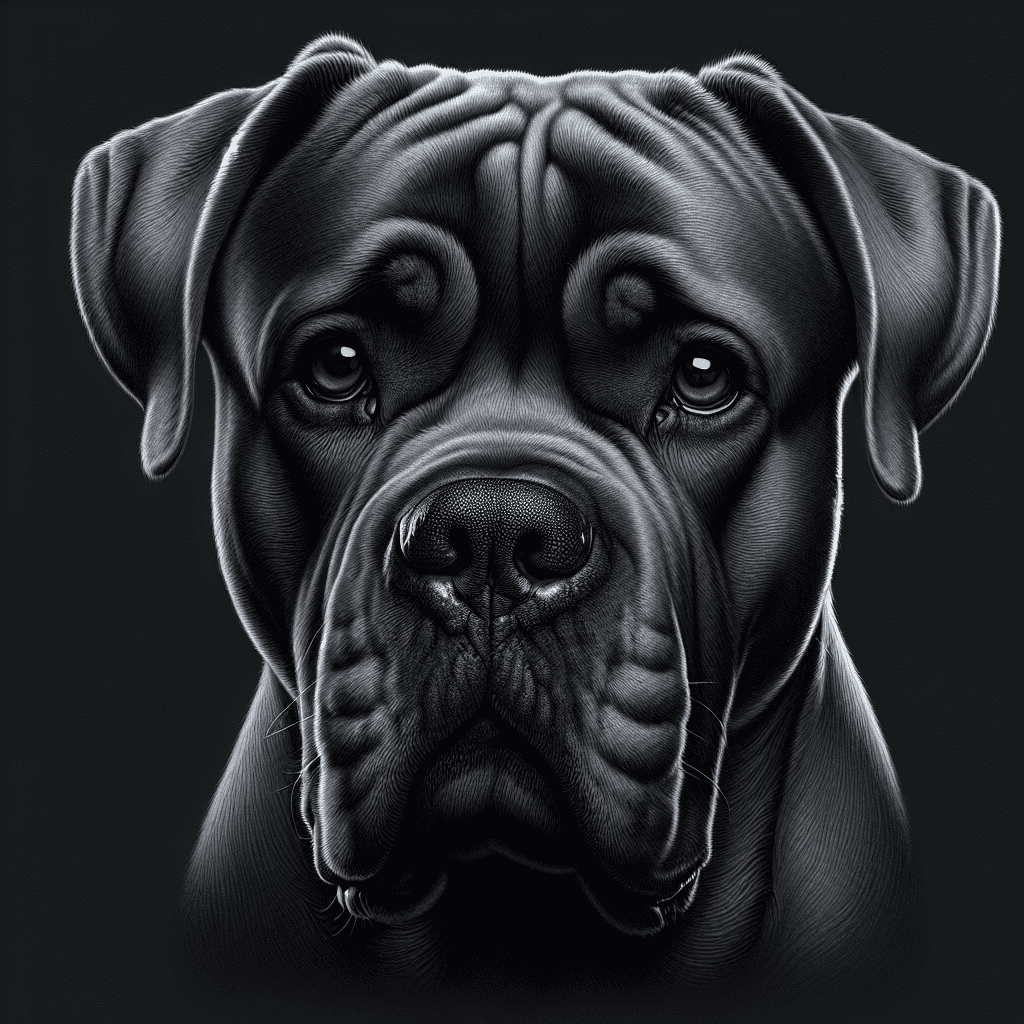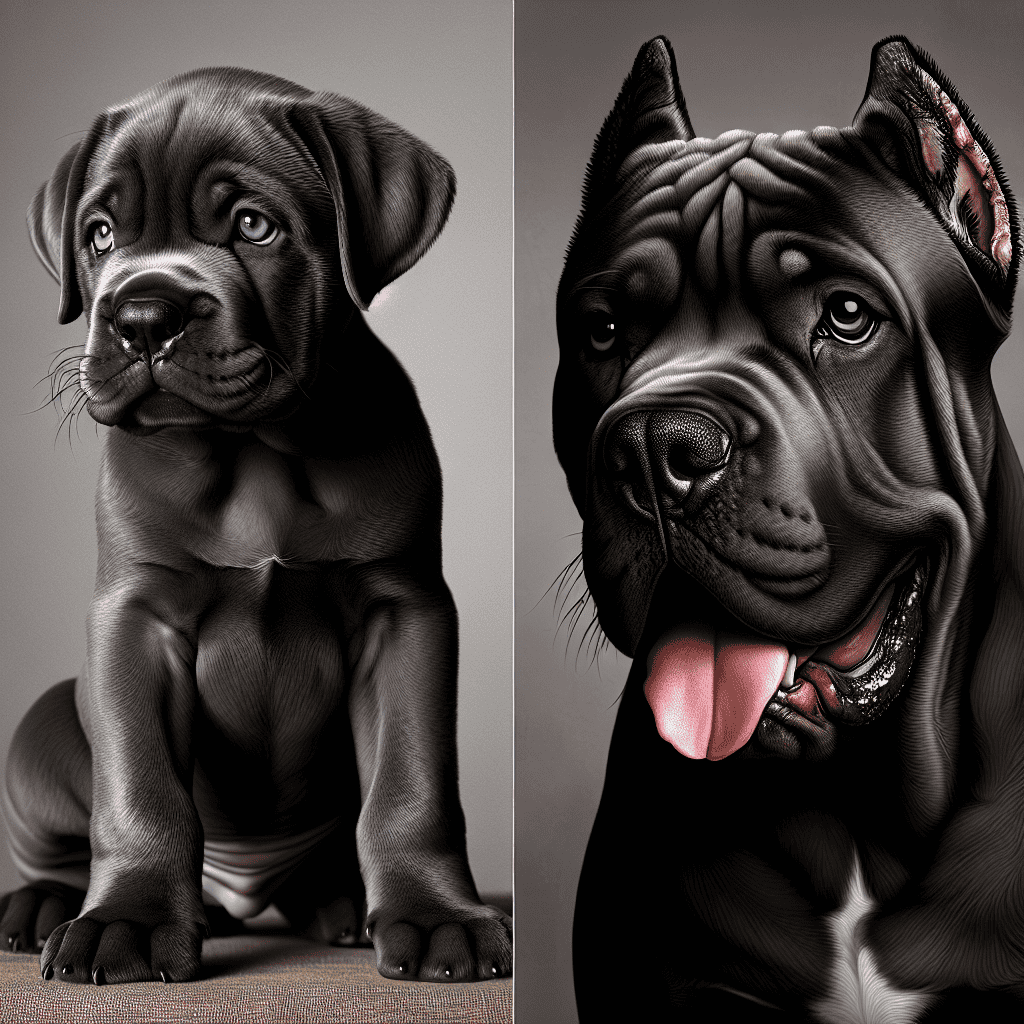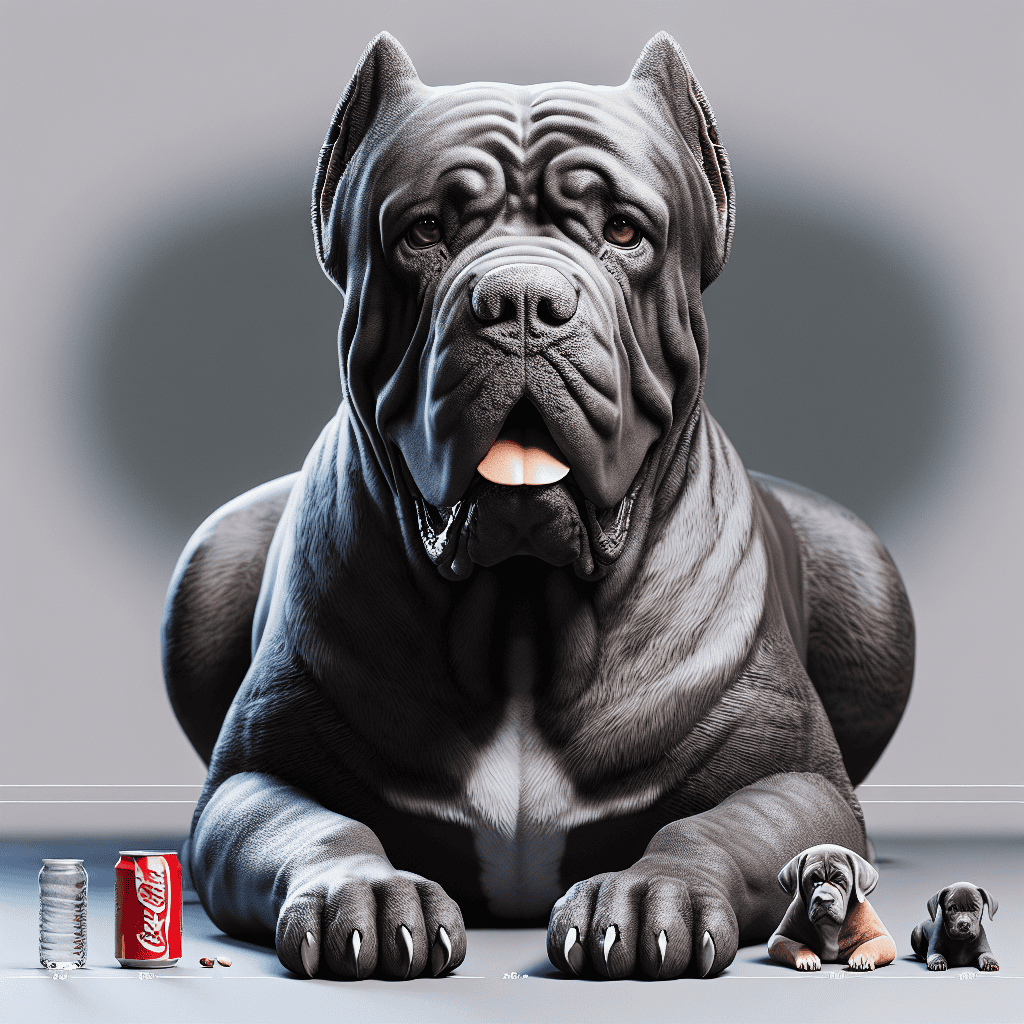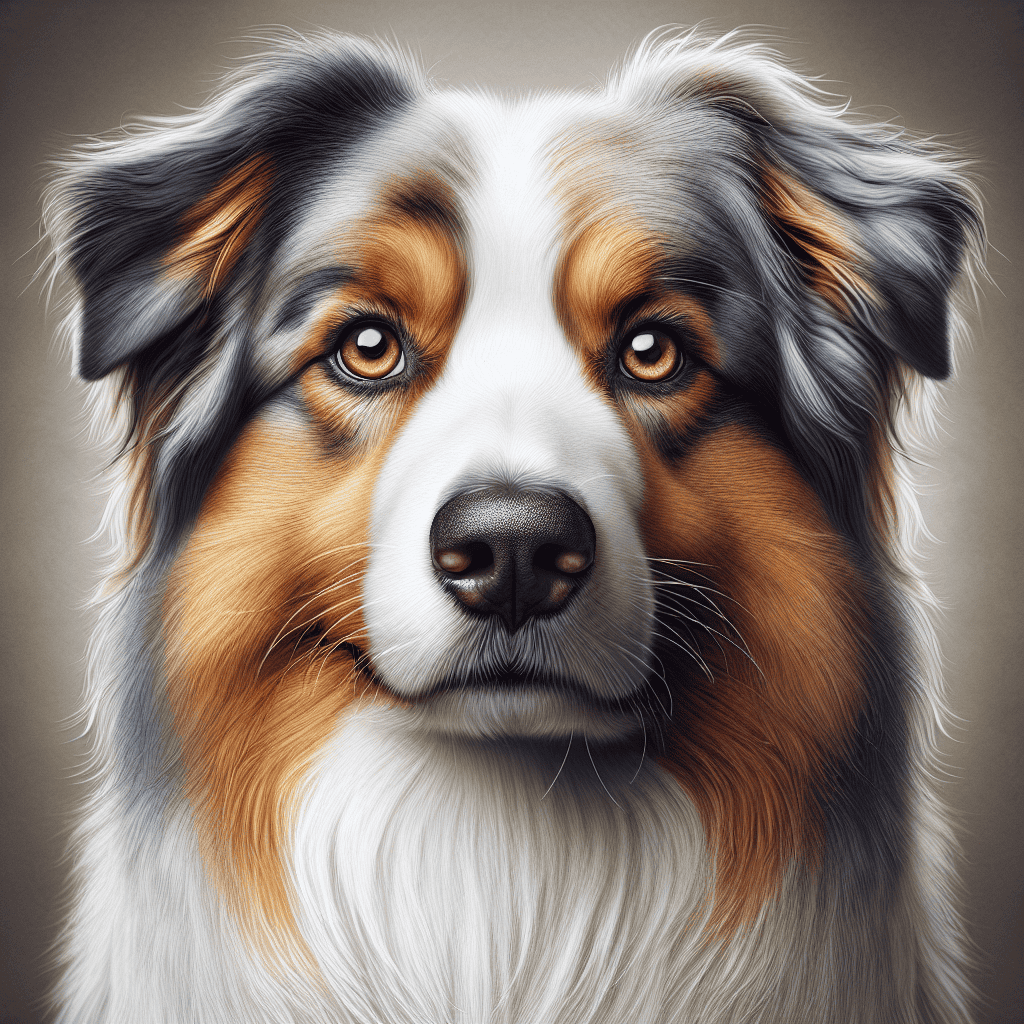Exploring the Cane Corso Breed
The Cane Corso breed is known for its impressive size, loyalty, and protective nature. Understanding the origins, history, and physical characteristics of the Cane Corso can provide valuable insights into this remarkable breed.
Origins and History
The Cane Corso is an ancient Italian breed with a rich history. Its direct ancestry can be traced back to the “Canis Pugnax” of the Roman Molossian, which served as “auxiliary warriors” in the Roman Wars. Over time, the breed transitioned to hunting large game and protecting properties, eventually evolving into the family protectors and companions we know today.
Although the breed has ancient roots, it only gained popularity in the United States in the 1980s (PetMD). After World War II, the Cane Corso population declined due to reduced working needs. However, enthusiasts made efforts to revitalize the breed by locating remaining Corsos in remote villages. These efforts led to the introduction of the first Corsos in the United States, marking a resurgence of interest in the breed (PhogHaven Cane Corso).
The Cane Corso was officially recognized as a breed by the Italian Kennel Club (ENCI) in 1994, the World Kennel Club (FCI) in 1997, and the American Kennel Club (AKC) in 2010. These recognitions signify the acceptance and standardization of the Cane Corso as a breed in various kennel clubs (PhogHaven Cane Corso).
Physical Characteristics
The Cane Corso is a large and muscular breed, known for its impressive stature and loyal nature. These dogs can weigh over 100 pounds and stand 28 inches tall at the shoulders (PetMD). Some key physical characteristics of the Cane Corso include:
- Large Heads: Cane Corsos have broad and proportionate heads, adding to their distinctive appearance.
- Expressive Faces: Their faces feature a powerful and alert expression, reflecting their protective instincts.
- Muscular Build: These dogs have a well-developed and athletic physique, showcasing their strength and agility.
To learn more about the Cane Corso’s physical characteristics, including their coat and color variations, refer to the section on coat and color variations.
Understanding the origins and physical characteristics of the Cane Corso helps provide a foundation for appreciating this breed’s unique qualities. Next, let’s explore how to care for a Cane Corso, including their lifespan, health considerations, exercise needs, and socialization requirements.
Caring for a Cane Corso
Caring for a Cane Corso involves understanding their unique needs and providing the necessary care to ensure their well-being. In this section, we will explore the lifespan and health considerations of the Cane Corso breed, as well as their exercise and socialization needs.
Lifespan and Health Considerations
The average lifespan of a Cane Corso is approximately 9-12 years, which is longer than the average for a giant-breed dog. However, it’s important to note that individual lifespans can vary depending on various factors such as genetics, diet, exercise, and overall care. To maximize their lifespan, it is essential to provide them with proper veterinary care, a balanced diet, regular exercise, and a loving environment.
While Cane Corsos are generally healthy dogs, there are some health issues that they may be prone to. These can include obesity, hip and elbow dysplasia, idiopathic epilepsy, demodectic mange, and eyelid abnormalities (PetMD). Hip dysplasia, in particular, is a common concern for the breed. This joint issue can cause chronic pain, inflammation, arthritis, and limited mobility as the dog ages. It is important to monitor their weight, provide regular exercise, and consult with a veterinarian to minimize the risk of hip dysplasia or manage it effectively if present.
Obesity is another significant concern for Cane Corsos. They have a tendency to overeat and can easily become obese if given too many treats or excessive food. Obesity can lead to various health issues such as joint pain, hip dysplasia, diabetes, breathing problems, and heart disease, which can significantly impact their lifespan. It is crucial to establish a balanced feeding routine, monitor their weight, and avoid overfeeding (Dogster).
Regular veterinary check-ups, vaccinations, and preventive measures such as flea and tick control are essential for maintaining the overall health of your Cane Corso. It’s also recommended to discuss specific health concerns with a reputable breeder or veterinarian to ensure you are well-informed about potential genetic risks.
Exercise and Socialization Needs
Cane Corsos are an active and energetic breed that requires regular exercise to keep them physically and mentally stimulated. Daily exercise is essential to prevent boredom and the development of destructive behaviors. This can include activities such as brisk walks, jogging, playing fetch, or engaging in interactive play sessions. Providing them with an outlet for their energy helps promote a healthy weight, muscle tone, and overall well-being.
In addition to physical exercise, Cane Corsos also require socialization. Early socialization is crucial to ensure they grow into well-rounded and confident dogs. Exposing them to various environments, people, and other animals from a young age helps them develop positive social skills and reduces the likelihood of fear or aggression towards unfamiliar situations. Puppy socialization classes, obedience training, and controlled introductions to new experiences can all contribute to a well-socialized Cane Corso.
Remember to always supervise interactions between your Cane Corso and other animals, especially smaller pets, as their protective instincts may come into play. Proper socialization and training can help foster positive interactions and compatibility with other animals in the household (cane corso temperament).
By understanding the lifespan and health considerations of the Cane Corso breed, as well as their exercise and socialization needs, you can provide the best possible care for your beloved companion. Regular veterinary care, a balanced diet, appropriate exercise, and early socialization are key components of ensuring the overall well-being and happiness of your Cane Corso.
Cost and Ownership
When considering adding a Cane Corso to your family, it’s important to understand the cost and responsibilities that come with owning this breed. In this section, we will explore the initial costs, ongoing maintenance, and the training and temperament of the Cane Corso.
Initial Costs and Maintenance
The cost of purchasing a Cane Corso puppy from a reputable breeder can range from $1,500 to $2,500 on average. However, for a Cane Corso puppy with top breed lines and a superior pedigree, the cost may be between $3,000 and $5,500 (PetMD). It’s important to do thorough research and find a reputable breeder who prioritizes the health and well-being of their dogs.
In addition to the initial purchase cost, there are other expenses to consider. These include:
- Veterinary Care: Regular check-ups, vaccinations, and preventative medications are essential for the health and well-being of your Cane Corso.
- Food and Nutrition: Providing a high-quality diet that meets the nutritional needs of your Cane Corso is important for their overall health.
- Grooming: While Cane Corsos have short coats that require minimal grooming, regular brushing and occasional bathing are still necessary to keep their coat healthy and clean.
- Training and Socialization: Cane Corsos require early socialization and consistent training to ensure they grow into well-behaved and well-adjusted dogs.
- Toys and Supplies: Providing toys, bedding, and other supplies to keep your Cane Corso comfortable and entertained.
It’s important to budget for these ongoing expenses to ensure you can provide the necessary care and maintenance for your Cane Corso.
Training and Temperament
The Cane Corso is a breed that requires experienced ownership and a firm, consistent hand in training. They possess a dominant personality and are highly protective of their families and property. Their temperament is not suited for first-time dog owners (PhogHaven Cane Corso). Early socialization and continuous training are essential to ensure stability and adaptability to changes.
Despite their protective nature, Cane Corsos can be gentle and tolerant with children, forming strong bonds with their families (PhogHaven Cane Corso). However, they require proper socialization to be well-adjusted around new people and other animals. Separation anxiety is not uncommon in this breed, so it’s important to provide them with the attention and love they need.
Training a Cane Corso should focus on positive reinforcement techniques, consistency, and clear boundaries. It’s important to establish yourself as the pack leader and provide them with the structure and guidance they need to thrive. Working with a professional dog trainer who specializes in large breeds can be beneficial in ensuring your Cane Corso receives appropriate training.
By understanding the initial costs, ongoing maintenance, and the training and temperament of the Cane Corso, you can make an informed decision about whether this breed is the right fit for you and your lifestyle. Owning a Cane Corso requires dedication and commitment, but with proper care and training, they can be loyal and loving companions.
Coat and Color Variations
The Cane Corso breed exhibits a range of coat colors and patterns, each contributing to the unique appearance of these magnificent dogs. Additionally, understanding their grooming requirements is essential for maintaining their coat’s health and overall well-being.
Common Coat Colors
Cane Corsos come in various coat colors, as specified by the breed standard. The most common coat colors include black, fawn, brindle, and red. It’s worth noting that some individuals may also have white markings on their chest, toes, and muzzle. These markings add an extra touch of character to their appearance.
| Common Coat Colors |
|---|
| Black |
| Fawn |
| Brindle |
| Red |
Figures courtesy DogTime and PetMD
It’s important to remember that the color variations in Cane Corsos are part of their natural genetic diversity. The breed’s coat colors contribute to their visual appeal and uniqueness.
Grooming Requirements
Cane Corsos have a short and dense coat that requires minimal grooming. Their coat is smooth and doesn’t tend to mat easily. While they have a short coat, they do shed moderately throughout the year, with heavier shedding occurring twice a year. Regular brushing can help remove loose hair and reduce shedding around the home.
To keep their coat in optimal condition, occasional baths with a dog-specific shampoo are recommended. Be sure to use products that are suitable for their skin type to avoid any potential irritation.
Additionally, routine maintenance such as regular nail trimming, ear cleaning, and dental care is essential for their overall grooming needs. Regular veterinary check-ups are also important to monitor their health and address any potential issues early on.
By adhering to a consistent grooming routine, you can help keep your Cane Corso’s coat healthy and shiny while maintaining their overall well-being.
Understanding the coat variations and grooming requirements of the Cane Corso breed enables you to appreciate their unique appearance and provide the necessary care they deserve.
Interactions with Other Pets
When considering adding a Cane Corso to your household, it’s essential to understand their interactions with other pets. Proper socialization and training play a vital role in ensuring a harmonious environment for all animals involved.
Socialization Tips
Cane Corsos can be quite dominant with other dogs, but with proper socialization, they have the potential to get along well with them. It’s crucial to expose your Cane Corso to various social situations, including interactions with other dogs, from a young age. This helps them develop positive associations and learn appropriate behavior (Quora). Consider enrolling your Cane Corso in obedience classes or seeking guidance from a professional trainer or behaviorist to ensure effective socialization techniques.
When introducing your Cane Corso to other dogs, it’s important to do so in a controlled and supervised environment. Start with neutral territory and gradually increase the duration and intensity of the interactions. Reward positive behavior and provide a calm and structured environment to prevent any potential conflicts.
Compatibility with Other Animals
While Cane Corsos can potentially get along with other dogs, their strong prey drive may make them less suitable for homes with small pets like cats or rabbits. Due to their natural instincts, it’s crucial to exercise caution when introducing a Cane Corso to smaller animals. Every dog is different, so closely monitor their interactions and assess their compatibility on an individual basis. Consult with a professional trainer or behaviorist to determine if a Cane Corso is a good fit for your household, especially if you have other pets (Quora).
When introducing a Cane Corso to smaller pets, it’s important to provide separate spaces and supervised interactions. Always prioritize the safety of all animals involved and consider their individual temperaments and behavior. Proper training and management can help establish boundaries and minimize potential conflicts.
Understanding and respecting the unique dynamics between your Cane Corso and other pets is crucial for maintaining a peaceful and harmonious household. With proper socialization, training, and supervision, Cane Corsos can coexist with other pets, fostering a positive and safe environment for everyone involved.
Understanding the Cane Corso Temperament
The temperament of the Cane Corso breed is a key aspect to consider when deciding if this breed is the right fit for you and your family. Cane Corsos are known for their loyalty and protective instincts, but they also present unique training challenges and rewards.
Loyalty and Protective Instincts
Cane Corsos are often described as the “Ferrari of mastiff breeds” due to their impressive combination of size, strength, and speed. They have a dominant personality and possess a strong protective instinct towards their families and property. This trait makes them excellent guard dogs and loyal companions.
Despite their tough exterior, Cane Corsos have a sensitive nature and form deep bonds with their families. They are often referred to as “velcro-dogs,” as they crave attention and love from their owners. They are known to be gentle and tolerant with children and can be a wonderful addition to a family environment.
It’s important to note that Cane Corsos require strong and consistent leadership. They often choose one person in the family to be fully responsible for, viewing them as the “pack leader.” Proper training and socialization are crucial to ensure that their protective instincts are appropriately directed and that they can adapt to various situations and environments.
Training Challenges and Rewards
Training a Cane Corso can be a rewarding yet challenging experience. They are independent thinkers and are not particularly eager to please. Training them requires time, effort, and determination. It’s important to establish yourself as the leader and provide consistent, positive reinforcement-based training methods. Cane Corsos respond well to firm, fair, and consistent guidance.
Early socialization is essential for Cane Corsos to become well-adjusted adults. Introduce them to various people, animals, and environments from a young age to help them develop proper social skills and reduce the risk of any potential issues. Properly socializing a Cane Corso can help them feel more comfortable and confident in new situations.
Remember that Cane Corsos are not inherently dangerous or aggressive. However, their protective instincts require proper training and socialization to prevent any potential issues. With the right training, consistency, and early socialization, Cane Corsos can be wonderful family companions.
Understanding the temperament of the Cane Corso is crucial before bringing one into your home. Their loyalty and protective nature make them excellent guardians, but they require dedicated training and socialization to ensure their stability and adaptability to changes. If you are willing to put in the time and effort to train and socialize a Cane Corso, you will be rewarded with a loving and devoted companion.






